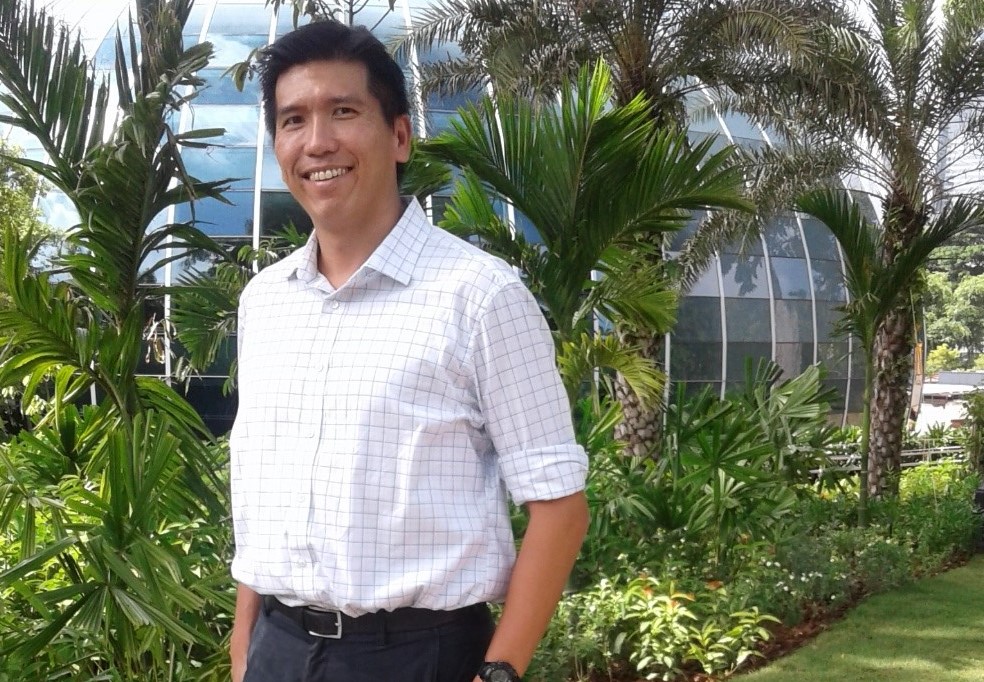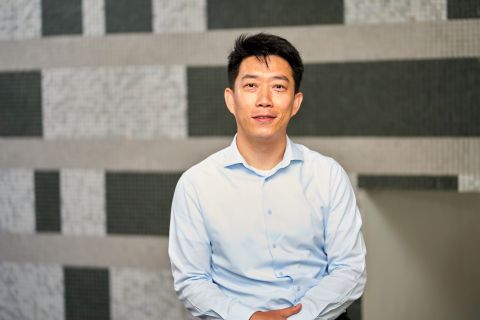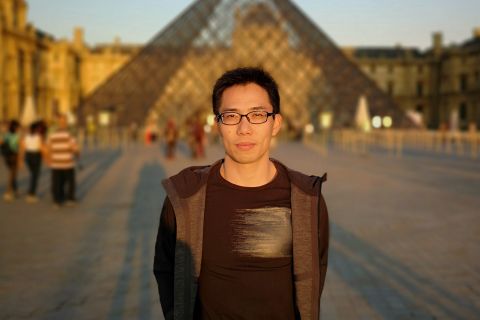
By Thomas Lim
SMU Office of Research & Tech Transfer – Climatologist Winston Chow is one of the latest faculty members to join the SMU community. The self-professed fan of British fantasy and comics writer Alan Moore, whose notable works include V for Vendetta and Swamp Thing, almost did not choose to read Geography in his Honours year. Recalled the Associate Professor, now with the School of Social Sciences and Office of Core Curriculum: “I actually wanted to write an English Literature thesis on science fiction and fantasy in graphic novels, but my prospective Literature supervisor advised me to opt for Geography instead, which I had done better in.”
Formerly with the Department of Geography at the National University of Singapore (NUS), Professor Chow will be teaching a new module entitled “Climate Change: Global and Local Solutions” under the revised Core Curriculum, which all SMU undergraduates must take in order to graduate. While he declined to reveal too much about what he will be teaching, he said that his students would be able to go out and about “because you can’t be an armchair social scientist learning about climate change”.
The affable don also disclosed that he was offered positions elsewhere, but he had chosen to come to SMU and make a difference in Singapore. Moreover, he wanted to stay home as he had already spent a total of seven years in the United States, where he finished his doctorate at Arizona State University (ASU), after which he completed a postdoctoral fellowship at the Department of Engineering at ASU. The fact that SMU encourages collaborative research also appealed to him, since he had experienced first-hand “the New American University” model during his ASU days.
Interdisciplinary research the way to go
According to Professor Chow, this new model was championed by ASU President Michael Crow, who guided ASU towards doing more interdisciplinary research across the university. There is a key distinction between interdisciplinary and multidisciplinary work as the latter merely involves people from numerous disciplines only working according to the confines and conventions of their disciplines. Interdisciplinary work, however, requires people from disparate disciplines coming together to approach a research question, and figuring out how they can combine or modify different methods and approaches using a common understanding to arrive at a richer, more comprehensive answer to that question.
In Professor Chow’s case, he spent two years installing and maintaining a micrometeorological tower during his postdoctoral fellowship as an engineer, so much so he jokes that he is fluent in ‘engineer-ese’! Even so, he continued to work with, among others, social geographers, ecologists, demographers and spatial science scholars on research related to heat in cities, a topic close to his heart. He has done extensive research on the science and social science related to the urban heat island (UHI), simply defined as cities being very much hotter than their surroundings as a result of human activities.
At present, he continues engaging in interdisciplinary research on his pet topic as part of the Cooling Singapore project, which has been funded by the National Research Foundation since 2017. As a Principal Investigator, Professor Chow collaborates with architects, engineers, statisticians, ecologists and other scientists to explore effective ways to reduce urban heat and increase thermal comfort in Singapore. Under the upcoming phase 2.0 of the project, the collaborators intend to comprehensively assess the science, impacts, adaptation and mitigation methods that can better tackle the problem of Singapore’s UHI for a large number of stakeholders affected by excess heat.
Dealing with heat and its effects head-on
While at SMU, the don will be delving into research areas like sustainability in urban climatology, as well as perceptions of environmental and climate change in tourism.
In studying the former, Professor Chow will look at how local activities like construction and motor transport aggravate heat in cities, making the climate even hotter than it already is from global warming. It does not help that things we take for granted in an urban environment like asphalt and glass worsen the heat, since asphalt surfaces replace vegetation, which can help cool the climate through the process of evapotranspiration. The professor will lead investigations into how people can adapt to the increased urban heat, and the ways it can be reduced through both engineered and non-engineered means.
As for his second research project in SMU, Professor Chow will be working with an ex-NUS colleague to study how visitors in the various parks in the Mandai district, such as the Singapore Zoo, Night Safari and River Safari, view the environment. Specifically, they aim to find out how well visitors – both locals and tourists alike – are able to absorb the environmental/education messaging given the thermal environment in these parks. This project is one of four environmental research projects to receive $600,000 in grants under the Mandai Research Fund in July 2019.
Urban climate and the Intergovernmental Panel on Climate Change
Apart from looking at urban heat and its impacts, much of Professor Chow’s recent research output covers various aspects of Singapore’s climate and the state’s policies related to them. In ‘The Impact of Weather Extremes on Urban Resilience to Hydro-Climate Hazards: A Singapore Case Study’, he examined the city-state’s government policies on climate and the urban infrastructure that has been put in place, and found that the system has resilience or, for want of a better term, “bouncebackability” when hit by harsh weather elements like droughts and floods.
Meanwhile, in ‘Trans-boundary Variations of Urban Drought Vulnerability and Its Impact on Water Resource Management in Singapore and Johor, Malaysia’, co-written with other Singapore-based colleagues from an inter-disciplinary perspective, they concluded that the policies used by both countries to deal with more frequent and intensive drought episodes and its impact are starkly different, and this can lead to very fractious discussions concerning urban water resource management between the two neighbours.
Last year, Professor Chow was invited as one of only 700 experts from almost 3,000 nominees worldwide to participate in the Sixth Assessment Report of the Intergovernmental Panel on Climate Change (IPCC). The IPCC is the authoritative United Nations body for assessing the science related to climate change over the past 30 years, and shared the Nobel Peace Prize on 2007 for their efforts. The authors selected are responsible for providing governments at all levels with information to develop climate policies, and give key inputs during international climate change negotiations. They also volunteer their time and expertise for the IPCC – they are not paid for their efforts. He is the only Singaporean invited to be a Lead Author in this upcoming report that will be published in 2021/2022.
Given his expertise on urban climate, he is part of an interdisciplinary chapter team writing on climate impacts within cities and key infrastructure, and is also part of the team assessing climate change impacts on coastal cities. He notes that “cities are important areas where major climate impacts will occur in, and they are also places where potential solutions will be found and can be effectively managed.”
Back to Research@SMU Aug 2019 Issue
See More News
Want to see more of SMU Research?
Sign up for Research@SMU e-newslettter to know more about our research and research-related events!
If you would like to remove yourself from all our mailing list, please visit https://eservices.smu.edu.sg/internet/DNC/Default.aspx

